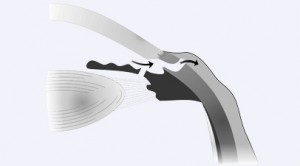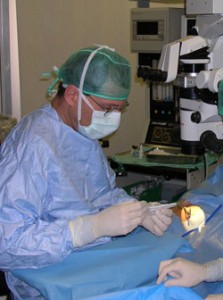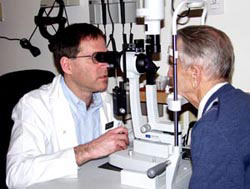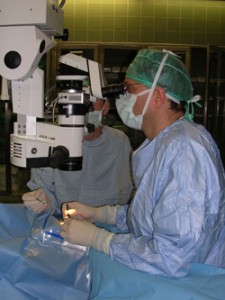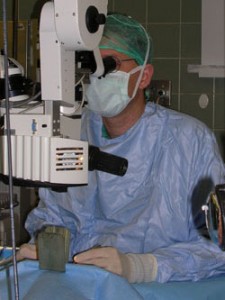Following glaucoma and cataract surgery, the operated patient will be informed that the surgery has been successfully completed, and with the assistance of a nurse will leave the operating room. The patient will then be transferred to a room in which he/she will stay for a short period of time (say, an hour) for observation. Assuming the surgery was scheduled as a day care hospitalization, (which is normally the case today), once the patient feels up to it, he/she will be discharged home after given some instructions. Those patients who would like to stay the night in the hospital, can be hospitalized in the ophthalmology ward (as opposed to the day care option) and stay hospitalized until the following morning. The more complex eye surgeries, often in patients who have more than one disease in the operated eye, may remain for observation after the surgery for a few additional days, depending on their condition.
It is usual for a patient during the first 24 hours after surgery to feel some discomfort and/or a slight pain in his eye, a sensation which is usually related to the healing processes starting after surgery. In most cases the patient will be examined the following day. Right after surgery the patient will be asked to start instilling eye drops in the operated eye, eye drops which are usually purchased in advance of the surgery day. Normally the patient will be asked to instill drops from two bottles). The patient should ask the surgeon about whether to continue taking any drops that were taken prior to the surgery in that eye (presuming that drops were indeed taken prior to surgery). It is important to emphasize that medications (via eye drops) following surgery are extremely important for the success of the surgery, and should not be neglected under any circumstances.
Many patients are unsure what is, and isn’t, permitted to do after surgery. It is advised during the first week after the surgery to avoid excessively wetting the eye (as in the shower). In addition it is recommended to avoid strenuous physical activities such as lifting heavy items or bending down. Most important: avoid the risk of getting hit, or injured, in the eye.
In summary, after surgery the patient is requested to note the following:
- Use the eye drops as instructed by your eye surgeon
(it is worthy to read the chapter: How to instill eye drops). - Try to avoid rubbing the eye, beware of getting a direct hit or injuring the eye.
- When needed, pain tablets may be used (such as Acamol, Optalgin, Tylenol, etc.).
- Avoid intense physical activities until the eye heals (normally for a period of 2-3 weeks).
- Maintaining a normal daily routine is permitted, usually after a few days of resting (i.e. ‘taking it easy’).
- Consult with your doctor when to return to work, and when driving be resumed.
- In situations when the eye is at risk of being hit (such as when holding infants, in the vicinity of flying balls, etc.), wear glasses or sun glasses.

